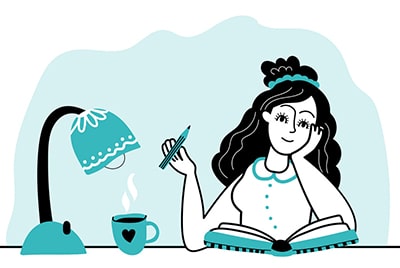How to Study For the Canadian Citizenship Test
 If you really want to pass the Canadian citizenship test, there are no shortcuts but to study for the test. In fact, the only reason the citizenship test is scheduled 2 or 3 weeks later after receiving the invitation notice is to allow the applicants enough time to study and prepare. Sure enough, you know the prime minister of Canada is Justin Trudeau but do you know the origin of the word ‘Canada’? Clue; something about ‘Kanata’ derived from Huron-Iroquois. If you’re not certain about the answer, the multiple choices will confuse you even more. However, if you’ve been studying and prepping for the citizenship test, no question will leave you guessing for the answer. But how do you study for the citizenship test?
If you really want to pass the Canadian citizenship test, there are no shortcuts but to study for the test. In fact, the only reason the citizenship test is scheduled 2 or 3 weeks later after receiving the invitation notice is to allow the applicants enough time to study and prepare. Sure enough, you know the prime minister of Canada is Justin Trudeau but do you know the origin of the word ‘Canada’? Clue; something about ‘Kanata’ derived from Huron-Iroquois. If you’re not certain about the answer, the multiple choices will confuse you even more. However, if you’ve been studying and prepping for the citizenship test, no question will leave you guessing for the answer. But how do you study for the citizenship test?
Use the study guide as the primary source of reference
The advantage of studying for the Canadian Citizenship test is that all the topics that will be examined in the test will be covered in the ‘Discover Canada: The Rights and Responsibilities of Citizenship’. Don’t overwhelm yourself by trying to find references from other books or materials, just stick to what is covered in the official guidebook. If you’re the type that prefers reading on actual paper, you can request a physical copy straight to your mail at no cost. There is also an e-book and audio version available for free download.
Prepare a study timetable
Studying is a matter of habit. If you read the study guide for 1 day and toss it aside until the day of the test, you will most likely forget the important details. Cramming the night before the test will also make you nervous and more likely to flop the test. Nevertheless, if you have 2 or 3 weeks to prepare for the citizenship test, the most effective strategy would be to prepare a daily study timetable to fit into your routine. Setting aside at least 2 hours per day to read the guidebook would be sufficient.
Avoid distractions
It is easy to make a study timetable but the real challenge is studying without distractions. It could be something simple like logging into Instagram, Twitter, or Facebook whenever you’re studying and ending up losing your focus during your session. Before you know it, the test date is just around the corner and you have barely covered the guidebook. That is why it is better to find a nice quiet place like the library where you’re less likely to be distracted especially if you have children that are constantly begging for your attention.
Pay closer attention to the little details
The ‘Discover Canada’ is a 66 pages guide book with various chapters classified into rights and responsibilities of citizenship, Canada’s history, government structure, the justice system, Canada’s geography, federal elections, modern Canada, Canada’s economy, and Canadian symbols. Before you sit for the citizenship test, make sure you have carefully analyzed all the chapters in the study guide. Moreover, you should pay closer attention to the side captions and images highlighted in the guidebook. Don’t even leave out the memorable quotes at the end of the guidebook.
Conduct a self-evaluating practice test
After reading and understanding the guidebook, the most effective way to know if you’re ready is to conduct a self-evaluating citizenship practice test. The Discover Canada guidebook contains a few self-assessment questions that you can answer once you’ve completed the book. Additionally, there are websites that offer practice tests to whoever is interested. Since there are 20 questions that need to be answered within 30 minutes, you can set the same timeframe and questions for your practice test. If you can comfortably answer 75% of the questions without re-checking the guidebook, you’re halfway through.
Attend a review class
Most local libraries and immigrant centres in Canada have programs to help applicants prepare for the Canadian citizenship test. There are usually instructors that teach the content covered in the guidebook. In case there are grey areas in the study guide you didn’t understand, you can ask questions to clarify. If there are no local libraries around that offer preparation classes, you can start your own review class with friends or family members who are willing to assist. The more you discuss a subject, the more likely it will stick to your mind. You can also take this online Canadian citizenship test course.
Apart from examining your knowledge of Canada, the citizenship test will also test your English skills through complex constructed sentences. Hence, if your English skills are below average, it is better to apply for the citizenship test after you have improved your English understanding and writing skills. Keep in mind that the reason most people fail the citizenship test is due to lack of preparation and poor comprehension of English or French. However, as long as you’ve studied intensively, achieving a 75 to 100 percent score on your first try is possible.
